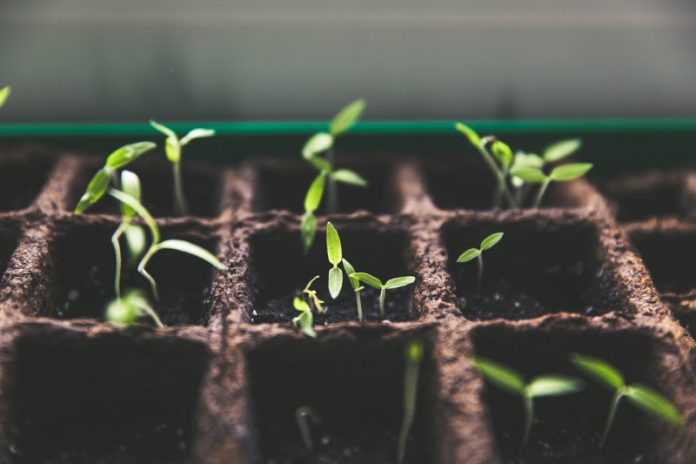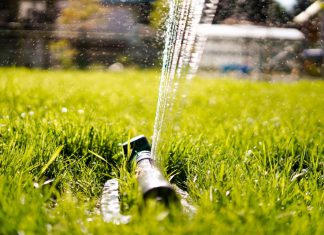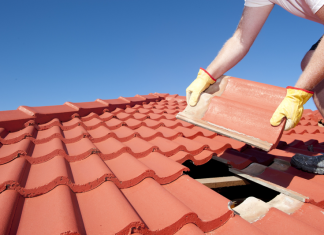Even if you have never grown anything in your entire life, it’s never too late to learn how.
For most of us, gardening is less about a love of dirt and plants and more about making our outdoor spaces look good. And no garden makes a statement like one filled healthy and showy plants. Have you ever felt like gardening is just a little too much for you to handle? It can be hard to get your head around all the different aspects, or even find the time and space to do it. But don’t worry! Here are 7 of the best-kept secrets from gardening experts that will help transform your plant-growing skills.
Secret # 1. Place a layer of mulch or gravel around your plants to keep weeds down and moisture in the soil.
To make this happen it does not have to be expensive, there are always cheap ways to do it, you can buy bags of mulch from a garden center or even sift through free woodchips at the lumberyard.
Don’t be tempted just to spread mulch around the base of your plants, though – it doesn’t do much good if there isn’t enough covering your entire flower bed. Really cover every inch of soil with a couple of inches of mulch or gravel.
Secret # 2. Add compost to the soil before planting for increased nutrient absorption
Compost is not as hard to make as you might think. The cheapest compost comes from your kitchen waste and food scraps. Compost can be made in a pile or even in garbage bags.
When you plant, add a layer of compost around the plants about eight inches deep – yes, this will take some time and effort, but it will pay off in the end.
Secret # 3. Keep a close eye on your plants, looking out for signs of insects, disease, or drought
This is very important – if you don’t check your plants every day, the effects of pests and disease can escalate quickly.
Plants that are suffering will have yellowish leaves, curling edges, or brown tips. A sure sign of insect activity is webbing or the presence of insects themselves.
Plants should be watered when their soil feels dry – this means you shouldn’t be watering on a set schedule where you give them the same amount every time. If you put your finger in the soil, and it’s moist and warmto the touch, your plants have enough water.
Secret # 4. Know when to prune your plants
When you cut a branch off a tree, that’s called pruning; it’s taking some of the plant away to allow for growth elsewhere or to control its size and shape by removing dead or diseased branches. At certain times during the year, pruning is essential to ensure healthy growth.
Cut back perennials like hydrangea and rosemary before their flowers have a chance to form – they will start producing new leaves and shoots instead, giving you a fuller appearance in the process. Summer flowering shrubs like heathers should also be pruned back just after their blooms fade.
Pruning is also vital to keep your plants in shape – if you have a lot of flowers, prune wilting ones back so that others can flourish.The most important thing is not to wait; the second the leaves or flowers from your plant start looking unhealthy or unruly, you should proceed to cut it back.
Secret # 5. Be sure to water deeply every time you water – don’t just sprinkle the surface of the soil
This is one of the most important secrets, and if you skip this, your plants will suffer. If you sprinkle water on the surface of the dirt, it’ll dry out faster. When you’re watering, be sure to saturate the entire bed until all of the water has soaked into the soil at least six inches deep. For most plants, you’ll want to water them about once a week.
Keep in mind that it’s also essential to remove any excess water from the leaves of your plants after they’ve been watered – you don’t want any standing water on them. You can use small paintbrushes to do this or a hose with a nozzle sprayer attachment.
Secret # 6. Use organic fertilizers instead of chemical ones because they won’t kill off beneficial bugs.
Plants that insects pollinate have very little else to do with humans, except that they need our help.
Luckily, there are natural alternatives to chemical pesticides.If you’re growing vegetables or flowers in your garden, make sure to use a fertilizer that’s meant for those plants- this will keep them healthy and resistant to pests and disease.
Secret # 7- Choose the right kind of plants for your green space according to your needs and lifestyle.
Don’t overcrowd your house with too many different plants – choose the correct houseplants to benefit you most.
You’ll be able to have beautiful indoor plants without having to spend a lot of money on them if you’ve chosen the right ones for your surroundings.Indoor plants are great because they offer benefits like reducing stress, improving air quality in your home. Some of the most popular species in this category include the monstera, sansevieria or calathea plants.
These seven secrets will help any gardener grow healthy plants with an excellent yield, even if they don’t have the perfect garden space.By following these secrets, you will undoubtedly end up with beautiful plants that don’t require much work. So don’t miss out on these incredible secrets; get started today!














